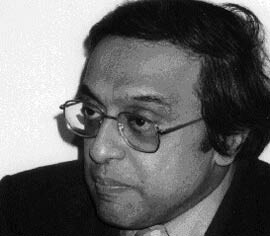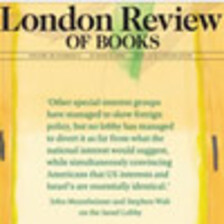The Electronic Intifada 18 April 2005

Under the sponsorship of Peace Malaysia, over 500 participants from 34 countries met March 28-30 in Putrajaya, the administrative capital of Malaysia, and unanimously adopted an action plan that called for the creation of a new International Center for Palestine Civil Societies in the South (ICPCSS) with the view of giving new life to peace prospects between Israelis and Palestinians. The declaration issued at the conclusion of the conference states that “unless justice is done to the Palestinian people, there can be no security for the people of Israel.”

Dr. Chandra Muzaffar, organizer of the conference.
Significantly, Dr. Abdallah Badawi, the Malaysian prime minister, formally opened the conference proceedings by expressing the hope that civil societies would become more activist in the Palestinian issue in order to break the deadlock in the peace negotiations, which had become a cause for world insecurity. He pointed to the successful role of civil societies in creating the anti-landmines treaty, the Kyoto Accord, and the Rome Statute that established the International Criminal Court.
“Like the struggle against apartheid,” he said, “the struggle of the Palestinian people against Israeli occupation of their country enjoys enormous support from the global community. Therefore a more concrete expression of this support by global society is timely and fitting.” International organizations such as the UN must be bolstered and given authority to deal with Palestinian injustice. Currently Malaysia is chairman of both the Organization of the Islamic Conference and the Non-Aligned Movement.
The moral authority of international humanitarian law, American activist Phyllis Bennis argued, will be the force reviving the global movement toward peace, and will ultimately force Israel as well as the United States to be held accountable for violations of law in Palestine and elsewhere.
The Action Plan adopted by the conference underscores the role played by the United States in Israel’s continuing oppression of Palestinians. “If this subjugation and oppression has lasted so long, if Israel has been able to violate international law with impunity, it is largely because Israel is protected by the United States of America, the world’s only superpower.” The statement then points to the important role played by US civil society as a “site for strategic intervention in the quest for a just solution to the conflict.”
The new Center hopes to:
The participants split up into 20 workshops to discuss more informally how a just solution could be brought to the conflict. Many of the ideas presented at the workshops were worked into the final draft of the conference declaration.
The conference was dominated by talks presented by Palestinian, Israeli and American activists, who collectively prescribed a way to a just solution to the Israeli-Palestinian conflict while weighing in heavily on the US’s responsibilities in prolonging the conflict.
The American contingent, in addition to Terry Walz representing the Council for the National Interest, included Phyllis Bennis, a fellow at the Institute for Policy Studies and a co-founder of the US Campaign to End the Israeli Occupation, Alison Weir, founder of If Americans Knew, and David Wildman, from the Global Ministries of the United Methodist Church and the US Campaign. Bennis, Weir and Wildman were also featured speakers, a recognition of the strong activist tradition in the US on this issue.
The conference organizers pushed the theme of nonviolence, and invited Dr. Arun Gandhi, founder and director of M.K. Gandhi Institute for Non-Violence in Rochester, NY and also a grandson of the Mahatma, to argue for non-violent methods of protest. Fr. Tom Michel, a member of the academic council of the Center for Muslim-Christian Understanding at Georgetown University, spoke on the need for justice and forgiveness as twin precursors of peace.
A major contingent from Palestine included Diana Buttu, formerly of the Negotiating Affairs Unit, Huwaida Arraf, co-founder of the International Solidarity Movement, Jad Isaac, director-general of the Applied Research Institute- Jerusalem, and Ramzy Baroud, editor-in-chief of PalestineChronicle.com. Sa’eb Erekat, Palestinian Minister of Negotiation Affairs was unable to attend. Azam Tamimi, director of the Institute of Islamic Political Thought in London, provided a more militant tone, arguing that Israel would never be free from terror until all Palestinians were treated equally as Jewish Israelis and given their long denied rights to their land and property.
Other Palestinians represented a variety of NGOs working in Palestine or Jordan, including a representative of the Palestine Peace Coalition (better known as the Geneva Initiative).
Malaysia does not have diplomatic relations with Israel, and the attendance of five Israeli peace activists was an event in itself, and they were well received by the Malaysians. It was said that their attendance at the conference was a reason why hardline Palestinian resistance movements refused to attend. The contingent included Gershon Baskin of the Israel-Palestine Center for Research and Information, Adam Keller and Beate Zilverschmidt of Gush Shalom, and Adi Dagan of Machsomwatch. Yitzhak Frankental, whose son Arik was killed in 1994 and who has worked since then in the peace movement in Israel, gave an emotional appeal for understanding.
Terry Walz is general manager of the Council for the National Interest.
Related Links




